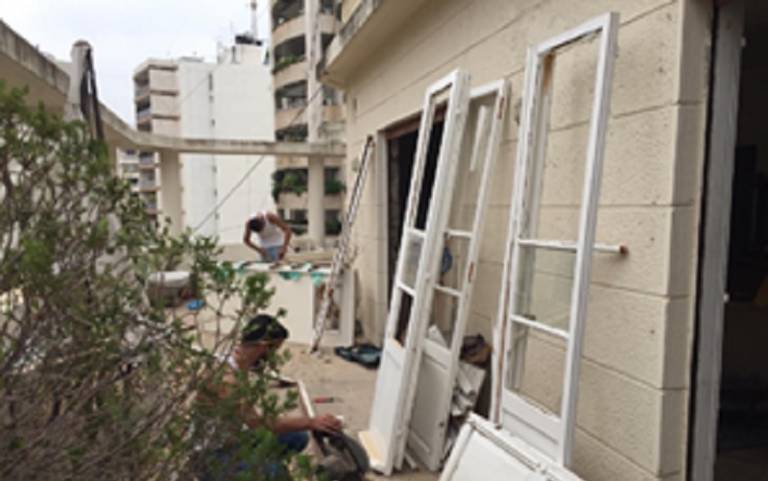Socially Just Planning: Implementing social justice in disaster response
22 April 2021, 4:00 pm–5:00 pm

Community-led reconstruction after the Beirut port explosion
Event Information
Open to
- All
Availability
- Yes
Organiser
-
Jingyi Zhu
BeBeirut Architects’ initiative has been launched by Paul Moawad (UCL BSP PhD Researcher) shortly the aftermath of the tragic Beirut Port blast that took place on August 4th, 2020 to assist the most vulnerable in rebuilding their damaged units and residences with over 30 of his students. The work is offered to all who are in need of assistance regardless of nationalities and status. BeBeirut Architects’ main task is to provide pro bono services that includes design, supervision, project management, revision of BOQs, project follow up and selection of local contractors. The BeBeirut Architects team is currently more than 50 volunteered architects, encompassing mainly architecture students and fresh graduates.
BeBeirut Architects have partnered with Beb W’ Shebbek one of the leading NGOs and core funding channel of the work done. Bebeirut Architects team have solely rebuilt over 125 units with several in progress and over 625 units with our local partner. The aim is to assess, fix and rebuild 3000 homes within a timeline of 20 months. BeBeirut Architects initiative came to fill a gap where the government emergence and disaster responses have been and remain absent. BeBeirut architects have also took a leading role in building a relief map using GIS technology denoting all the active organizations and associations on the ground as well as completed units and units yet to be done. Currently BeBeirut Architects have partnered with local partners (Beb W’ Shebbek and Let’s Play initiative) in designing and rebuilding children playgrounds of affected schools within the radius of destruction.
BeBeirut architects role is pivotal on the ground not only in providing design and technical expertise but also in listening and talking to the traumatized victims. An added value in all this effort is also re-activating the local economy that has been hit hard by the dire economic situation and mainly due to the blast. All sub-contractors are locally hired reinvigorating their shut businesses.
To follow Bebeirut Architect’s work please check please the following Instagram page:
https://instagram.com/bebeirutarchitects?igshid=eodozx0ynfeb
About the Speaker
Paul Moawad
PhD Researcher at The Bartlett School of Planning, UCL
Paul Moawad(M.Arch., MSc., PhD Researcher) is an architect, a lecturer and a doctoral researcher at UCL (BSP). His background is in architecture, urban design and real estate development spanning over 20 years of field and academic experience. He has been part of award-winning architectural teams receiving IIDA and AIA awards for designs of corporate workplaces, educational facilities, libraries and public places. He also taught design studios at the Corcoran Art & Design School in Washington DC and co-taught real estate development courses at Columbia University as a GTA. Additionally he served as a guest critic and has been invited to give seminars at UCL (BSP) and Imperial College London. His research interests focus on temporary urbanism, informal settlements, migration and refugees, temporariness and modalities of power and waiting. He recently launched the BeBeirut Architects’ pro-bono initiative with his students after the Beirut Port Blast rebuilding over 620 damaged housing units in partnership with local partners and currently designing and building children playgrounds for affected local schools. He is currently a visiting scholar at Yale university.
Recent works include: Tackling COVID-19 in informal tented settlements (Lebanon): an assessment of preparedness and response plans and their impact on the health vulnerabilities of Syrian refugees (with Lauren Andres, Journal of Migration and Health). Decoding Syrian Refugees’ Covid-19 Vulnerability in Informal Tented Settlements: a Community/Refugee-Led Approach to Mitigate a Pandemic Outbreak (with Lauren Andres, Town Planning Review); Temporary forms of urbanism in contested urban spaces in Lebanon: the case of Dbayeh camp (Springer).
 Close
Close

